 Your new post is loading...
 Your new post is loading...

|
Scooped by
Gust MEES
April 19, 2017 11:54 AM
|
Le Luxembourg Institute of Science and Technology (List) a signé mardi un partenariat de trois ans avec l’industriel Circuit Foil pour développer un nouveau type de cuivre capable de résister à des charges électriques très puissantes.
L’ambition des chercheurs est de mettre au point une nouvelle génération de cuivres destinés à la fabrication d’avions composites résistant à la foudre. En plein vol, les éclairs peuvent en effet causer des trous millimétriques dans la carcasse des appareils ou détruire des capteurs. Il existe par ailleurs le risque que les champs électromagnétiques générés par l’orage interférent avec le système électronique de l'appareil. Learn more / En savoir plus / Mehr erfahren: http://www.scoop.it/t/luxembourg-europe/?&tag=Research

|
Scooped by
Gust MEES
April 13, 2017 12:56 PM
|

|
Scooped by
Gust MEES
March 7, 2017 4:50 PM
|

|
Scooped by
Gust MEES
February 8, 2017 11:22 AM
|
Luxemburg bekommt einen Spezialisten für Neuropathologie, der klinische Diagnose mit Forschungsaktivitäten verbinden wird.
Anfang Januar 2017 nahm der renommierte Professor Dr. Michel Mittelbronn sein Amt am Laboratoire national de santé (LNS) auf. Er wird dort eine diagnostische Einheit aufbauen, die neuropathologische Begutachtungen durchführen kann. Diese werden für die Analyse von Erkrankungen des Nervensystems wie z.B. Hirnkrebs oder Parkinson benötigt. Dazu gehören mikroskopische und molekularbiologische Untersuchungen von Gewebeproben, um Veränderungen in der Morphologie oder im Erbgut zu identifizieren.
Bisher mussten solche spezifischen Analysen im Ausland durchgeführt werden, was oft mit langen Wartezeiten für Ärzte und Patienten verbunden war.
Der neue Neuropathologe wird seine Einheit am LNS in Zusammenarbeit mit dem Luxembourg Institute of Health (LIH) und dem Luxembourg Centre for Systems Biomedicine (LCSB) der Universität Luxemburg aufbauen, um auch deren Forschungsaktivitäten in den Bereichen Neuroonkologie (am LIH) und neurodegenerative Krankheiten (am LCSB) zu stärken.
Basierend auf diesem nationalen und strategischen Bedarf hatten die 3 Institutionen im Jahr 2016 eine gemeinsame Initiative ins Leben gerufen, um einen PEARL1 Chair für Neuropathologie über den Fonds National de la Recherche (FNR) zu rekrutieren.
Learn more / En savoir plus / Mehr erfahren: http://www.scoop.it/t/luxembourg-europe/?tag=Research

|
Scooped by
Gust MEES
January 18, 2017 12:15 PM
|
Professor Alexandre Tkatchenko from the Physics and Materials Science Research Unit of the University of Luxembourg won a highly esteemed “Consolidator Grant” awarded by the European Research Council (ERC). Tkatchenko investigates the interactions between molecules, which determine the properties and behavior of materials. He will receive about 1.8 million euros funding over five years for his research project “Beyond Static Molecules: Modeling Quantum Fluctuations in Complex Molecular Environments” (BeStMo). Learn more / En savoir plus / Mehr erfahren: http://www.scoop.it/t/luxembourg-europe/?tag=University+Luxembourg

|
Scooped by
Gust MEES
November 25, 2016 3:49 PM
|
Le nouveau laboratoire Scienteens Lab – De Labo fir Jonker, situé sur le campus de Belval, a officiellement été inauguré ce 24 novembre, en présence de Son Altesse royale la Grande-Duchesse héritière du Luxembourg. Deux nouvelles disciplines scientifiques ont également été présentées pour l’occasion. Learn more / En savoir plus / Mehr erfahren: http://www.scoop.it/t/luxembourg-europe/?tag=Science

|
Scooped by
Gust MEES
October 16, 2016 12:45 PM
|
Bisher wurde angenommen, dass es zwischen Menschen mit und ohne Typ-1-Diabetes Unterschiede in der DNA der Darmbakterien gäbe. Ein luxemburgisches Forscherteam hat nun herausgefunden: Das ist nicht so. Es gibt jedoch Unterschiede, was die Bakterien tun. Dies konnte mit einem neuen Analyseverfahren entdeckt werden.
Der menschliche Darm ist ein komplexes Ökosystem: Zahllose Bakterien besiedeln ihn und helfen dabei, die Nahrung zu verdauen. Eine zentrale Frage, die Forscher beschäftigt, ist ob die Zusammensetzung der Bakterien im Darm – das sogenannte Mikrobiom – bei gesunden oder kranken Menschen unterschiedlich ist. Denn dies könnte helfen, Krankheiten wie z.B. Diabetes früher zu erkennen und auch gezielter zu behandelt, z.B. durch Zugabe von Probiotika.
Ein Wissenschaftlerteam aus Luxemburg stellte jetzt anhand von menschlichen Stuhlproben fest, dass sich sich die bakterielle Artenzusammensetzung zwischen Menschen mit und ohne Typ-1-Diabetes gar nicht so dramatisch unterscheidet, wie bisher angenommen wurde. „Es gibt aber deutliche Unterschiede was die Bakterien tun,“ sagt Anna Heintz-Buschart vom Luxembourg Centre for Systems Biomedicine (LCSB) der Uni Luxemburg.
Sie ist Erstautorin der wissenschaftlichen Publikation der Ergebnisse, die heute im renommierten Fachblatt Nature Microbiology erschien. Learn more / En savoir plus / Mehr erfahren: http://www.scoop.it/t/luxembourg-europe/?tag=Research

|
Scooped by
Gust MEES
August 1, 2016 7:25 AM
|
Université du Luxembourg Sciences such as biology and biomedicine are generating gigantic amounts of research data from the analysis of genomes and gene products. Often, however, these data are only kept in one place, making comparisons between different studies difficult and the legalities regarding their use unclear. ELIXIR – the “European life-sciences Infrastructure for biological Information” is looking to fix this unfortunate state of affairs. Now Luxembourg becomes member of this transnational network: ELIXIR Luxembourg. In ELIXIR, 18 European countries are providing the ICT infrastructure for making data from biological and medical studies permanently accessible, to enhance their analysis and to support scientists´ research. With ELIXIR, Luxembourg aims to connect the national digitalisation strategy with the fast growing sector of biomedicine. Learn more / En savoir plus / Mehr erfahren: http://www.scoop.it/t/luxembourg-europe/?tag=University+Luxembourg

|
Scooped by
Gust MEES
July 1, 2016 5:24 PM
|
Schüler des LAM treten mit Energiespar-Auto beim „Shell Eco Marathon“ in London an
Mit nur einem Liter Kraftstoff 666 Kilometer zurücklegen? Dass so etwas möglich ist, beweist das „Lycée des Arts et Métiers“ (LAM) mit dem selbst gebauten „Eco-Töff 2“, einem Einsitzer mit Benzinantrieb. Voriges Jahr landete das Modell beim internationalen Energiesparwettbewerb „Shell Eco Marathon“ in Rotterdam auf dem 13. Platz von 39. Seit gestern ist wieder ein luxemburgisches Team bei dem Wettbewerb vertreten, der bis zum 4. Juli erstmalig im „Queen Elizabeth Olympic Park“ in London stattfindet (siehe Infokasten). Mit dabei sind zehn Schüler und fünf Lehrer verschiedener Klassen und Schulgänge aus Luxemburg. Die Gruppe reiste am vergangenen Montag an, das Gefährt wurde mit einem Lieferwagen transportiert - mit dem Schiff ging es über den Ärmelkanal.

|
Scooped by
Gust MEES
June 20, 2016 2:29 PM
|
Verstärkter internationaler Fokus, bessere Zusammenarbeit zwischen Uni und Centres de Recherche Publics (CRPs), mehr Investitionen in Infrastrukturen und das „Branding“ von Belval nicht vergessen: Dies sind einige der Empfehlungen des OECD-Berichts. Was läuft gut, was weniger? Michael Keenan, Co-Autor des Berichts, im Gespräch.

|
Scooped by
Gust MEES
March 30, 2016 2:27 PM
|
Wéi steet et em de #Medien Pluralismus an #Europa?
Hei d'Analyse mat e puer iwwerraschenden Zuelen iwwer #Lëtzebuerg Authors: Raphael Kies (University of Luxembourg) Céline Schall (University of Luxembourg) Kim Nommesch (Science Po Paris) October 2015 1.

|
Scooped by
Gust MEES
March 29, 2016 9:51 AM
|
Part of the research conducted at the Luxembourg Institute of Science and Technology (LIST) probes the boundary of current technology. Researchers of the LIST would like to invite you to discover one of the innovations in the domain of Tangible User Interfaces that they are currently developing to help adopters of the tangible tabletop technology to develop applications. As a big part of Applied Research is the transfer of knowledge, we would be happy to welcome you to our TULIP Hackathon!
Drei luxemburgische Wissenschaftler haben herausgefunden, wie der "erste Luxemburger" aussah. Sie rekonstruierten das Gesicht eines 8000 Jahre alten Skeletts, das 1935 im Müllerthal gefunden wurde. Sein Erbgut offenbart zudem ein Geheimnis zur Abstammung der heutigen Europäer.
|

|
Scooped by
Gust MEES
April 19, 2017 11:35 AM
|
Scientists at the Luxembourg Institute of Health (LIH) have discovered a previously unknown molecular mechanism that promotes activation of the human immune system, opening a door to new strategies for targeting cancer and autoimmune diseases.
The team, led by Professor Dirk Brenner, fellow and head of the Experimental & Molecular Immunology research group, has been studying the glutathione molecule, produced among others by a particular type of white blood cells named T-cells and known for its role in cleaning the body from harmful metabolic wastes. Their research project revealed that glutathione also stimulates T-cells’ metabolic energy. Learn more / En savoir plus / Mehr erfahren: http://www.scoop.it/t/luxembourg-europe/?&tag=Research

|
Scooped by
Gust MEES
March 15, 2017 6:27 PM
|
Stem cells are unspecialised cells that can develop into any type of cell in the human body. So far, however, scientists only partially understand how the body controls the fate of these all-rounders, and what factors decide whether a stem cell will differentiate, for example, into a blood, liver or nerve cell.
Researchers from the Luxembourg Centre for Systems Biomedicine (LCSB) of the University of Luxembourg and an international team have now identified an ingenious mechanism by which the body orchestrates the regeneration of red and white blood cells from progenitor cells. “This finding can help us to improve stem cell therapy in future,” says Dr. Alexander Skupin, head of the Integrative Cell Signalling group of LCSB. The LCSB team has published its results in the scientific journal PLOS Biology.
Although all cells in an organism carry the same genetic blueprints – the same DNA – some of them act as blood or bone cells, for example, while others function as nerve or skin cells. Researchers already understand quite well how individual cells work. But how an organism is able to create such a diversity of cells from the same genetic template and how it manages to relocate them to wherever they are needed in the body is still largely unknown.
In order to learn more about this process, Alexander Skupin and his team treated blood stem cells from mice with growth hormones and then watched closely how these progenitor cells behaved during their differentiation into white or red blood cells.
The researchers observed that the cells’ transformation does not occur in linear, targeted fashion, but rather more opportunistically. Each progenitor cell adapts to the needs of its environment and integrates itself into the body where new cells are needed. “So, it is not as though the cell takes a ticket at the beginning of its differentiation and then travels straight to its destination. Rather, it gets off frequently to look around and see which line is best to take,” Alexander Skupin explains. Learn more / En savoir plus / Mehr erfahren: http://www.scoop.it/t/luxembourg-europe/?&tag=University+Luxembourg

|
Scooped by
Gust MEES
February 8, 2017 11:55 AM
|
Scientists at the Interdisciplinary Centre for Security, Reliability and Trust (SnT) of the University of Luxembourg have developed an important mathematical algorithm called “Equihash”. Equihash is a core component for the new cryptocurrency Zcash, which offers more privacy and equality than the famous Bitcoin. Zcash came into operation as an experimental technology for a community-driven digital currency in late 2016. Learn more / En savoir plus / Mehr erfahren: http://www.scoop.it/t/luxembourg-europe/?tag=University+Luxembourg

|
Scooped by
Gust MEES
February 6, 2017 6:29 AM
|
La crise financière a montré combien les banques étaient fragiles. Un chercheur luxembourgeois a développé un modèle permettant une détection précoce des risques.
L'une des nombreuses réponses à la crise financière a été l'introduction de tests de résistance, les fameux « stress tests ». Tous les deux ans, les plus grandes banques européennes sont scrutées jusque dans les moindres détails par l'Autorité bancaire européenne (ABE). L'idée est de vérifier si elles ont suffisamment de capital pour résister à une période prolongée de pertes économiques.
Ces tests de résistance reposent sur l'hypothèse centrale que le bilan des banques n'évolue pas pendant cette phase, ce qui, d'après le mathématicien Eric Schaanning, n'est pas du tout réaliste. « Si de grosses pertes se profilent à l'horizon, les banques ne vont pas rester les bras croisés en attendant que l'orage passe », déclare-t-il. « Ce qui fait actuellement défaut aux tests de résistance est la modélisation des effets boule de neige et des réactions en chaîne qui apparaissent de manière spectaculaire en cas de crise financière », explique Eric Schaanning, qui travaille précisément sur le sujet.
Dans la thèse qu'il a remise il y a peu à l'Imperial College London, le jeune scientifique luxembourgeois s'est justement penché sur les risques systémiques des marchés financiers. Il s'est attaché à démontrer combien l'effondrement d'un acteur du marché (dans ce cas une banque) pouvait impacter ses homologues. « En comprenant mieux quand les effets de ce genre se produisent ou ne se produisent pas, il est possible de déduire un concept permettant de mieux prévoir le comportement des banques et ensuite de l'intégrer en tant que réaction aux tests de résistance », déclare le mathématicien. En collaboration avec des collègues chercheurs, il a ainsi développé un modèle de simulation pour détecter les risques.
Learn more / En savoir plus / Mehr erfahren: http://www.scoop.it/t/luxembourg-europe/?tag=Research

|
Scooped by
Gust MEES
January 11, 2017 9:46 AM
|

|
Scooped by
Gust MEES
November 22, 2016 6:44 PM
|
Wenn nützliche Darmbakterien zu wenig Ballaststoffe bekommen, fangen sie an, ihren Wirt von innen aufzufressen. Das zeigt eine neue Studie des LIH.
Es gilt als allgemein anerkannt, dass Ballaststoffe zu einer gesunden Ernährung dazugehören. Früher haben die Menschen davon auch reichlich gegessen, bis zu 100 Gramm pro Tag. In den letzten Jahrzehnten hat sich dieser Anteil allerdings auf dramatische Weise verringert. Was vor allem daran liegt, dass wir mehr Fertigprodukte zu uns nehmen und sich unser Lebensstil verändert hat.
Als Folge ist eine Zunahme von entzündlichen Darmerkrankungen, Darmkrebs und anderen Erkrankungen des Verdauungstraktes zu beobachten. Doch woran liegt das?
Bakterien greifen Darmschleimhaut an
Um diese Frage zu beantworten, führten Dr. Desai , Leiter der Arbeitsgruppe für Öko-Immunologie und Mikrobiomforschung am Luxembourg Institute of Health (LIH) und Dr. Eric Martens von der medizinischen Fakultät der Universität Michigan in den USA eine Studie durch. Eine Studie, die die Funktionen des menschlichen Verdauungstraktes simulierte, indem die Wissenschaftler Mäuse untersuchten, die ohne eigene Darmmikroben geboren und aufgezogen wurden. Diesen sogenannten gnotobiotischen Mäusen wurde ein Transplantat mit einem Cocktail aus 14 Bakterien eingesetzt, die normalerweise im gesunden menschlichen Verdauungstrakt vorkommen.
Danach wurden die Aktivitäten der Bakterien im Zeitverlauf beobachtet. Diese Versuche erlauben den Forschern das Benehmen bestimmter Bakterien in einem lebenden Organismus unter kontrollierten Bedingungen zu untersuchen. Learn more / En savoir plus / Mehr erfahren: http://www.scoop.it/t/luxembourg-europe/?tag=Research

|
Scooped by
Gust MEES
September 26, 2016 12:31 PM
|
Ein Luxemburger Schüler nimmt einen Ski-Unfall mit seinem Vater zum Anlass für ein Forschungsprojekt. Zu sehen mit anderen "hausgemachten" Innovationen im Forum Geesseknäppchen. Learn more / En savoir plus / Mehr erfahren: http://www.scoop.it/t/luxembourg-europe

|
Scooped by
Gust MEES
July 20, 2016 10:43 AM
|
The startup LuxAI was created following a research project at the Interdisciplinary Centre for Security, Reliability and Trust (SnT) of the University of Luxembourg, funded by the Luxembourg National Research Fund (FNR) under its Proof of Concept scheme. The business model of LuxAI is developing and constructing so-called social robots.
Such robots can be used, for example, in the educational or health system, where they would support trainers and therapists in their work. The robots can be programmed to practice vocabulary with children or to make rehabilitation exercises with stroke patients. Learn more / En savoir plus / Mehr erfahren: http://www.scoop.it/t/luxembourg-europe/?tag=Universit%C3%A9+du+Luxembourg

|
Scooped by
Gust MEES
July 1, 2016 1:41 PM
|
Mikroorganismen spielen trotz ihres schlechten Rufs als Krankheitserreger eine wichtige Rolle im Alltag. Für unsere Gesundheit sind sie gar unersetzlich. Moderne Untersuchungsmethoden revolutionieren im Augenblick die Disziplin der Mikrobiologie, da Wissenschaftler erstmals in der Lage sind, Mikroorganismen direkt in ihrer natürlichen Umgebung zu untersuchen, z.B. im menschlichen Körper, in Biogasanlagen oder in Lebensmitteln. Luxemburg hat Pionierarbeit in der Entwicklung verschiedener mikrobiologischer Methoden geleistet, die zur Zeit weltweit Anerkennung findet. Mit der neu gegründeten Gesellschaft LSfM soll Expertise gebündelt werden und diese u.a. bei Infektionskrankheiten (wie Zika oder Ebola in den letzten Jahren) zum Tragen kommen. Dazu braucht Luxemburg in Zukunft hochqualifiziertes Personal. Wie geht die LSfM das an? Und übrigens: Wie viele Mikroorganismen leben in unserem Körper? Die Antwort ist erstaunlich! Learn more / En savoir plus / Mehr erfahren: http://www.scoop.it/t/luxembourg-europe/?tag=Research

|
Scooped by
Gust MEES
May 21, 2016 7:31 AM
|
The Fonds National de la Recherche (FNR) - National Research Fund - has published its 2015 Report which reviews the year's changes in governance, its internal operations and the successful launch of several major projects.
All in all, 187 projects representing approximately 30% of the applications submitted, were selected for funding. Through its activities, the FNR pursues its mission of establishing a sustainable research system and international reputation that will generate a significant impact on the societal level and in strategic economic sectors for Luxembourg.

|
Scooped by
Gust MEES
March 30, 2016 6:37 AM
|
This 10th edition of FOCUS has as its main theme the production technologies of the future. Luxembourg has a proud manufacturing tradition, centred around the production and processing of materials. Materials manufacturing accounts for a large proportion of the R&D activities of the country as a whole, and the sector is constantly searching for and investing in new production technologies aimed at enhancing competitiveness and productivity. The magazine covers cutting-edge activities related to the production of composite materials, lean manufacturing, robotics, high-tech laser applications and many others.

|
Scooped by
Gust MEES
March 19, 2016 9:02 AM
|
PhD candidate in photovoltaics selected to attend Hossam Elanzeery is an AFR PhD candidate at the University of Luxembourg, working in the field of physics of photovoltaics in the laboratory of Professor Susanne Siebentritt. His research project focusses on the electrical characterization of Alkali-treated Copper-rich thin film solar cells. Hossam is amongst only 400 young scientists to have the unique opportunity to attend the Lindau Nobel Meeting, which will see around 30 Nobel Laureates in physics congregate in Lindau to meet the next generation of leading scientists and researchers. The FNR will sponsor Hossam’s attendance at the Meeting.
|



 Your new post is loading...
Your new post is loading...




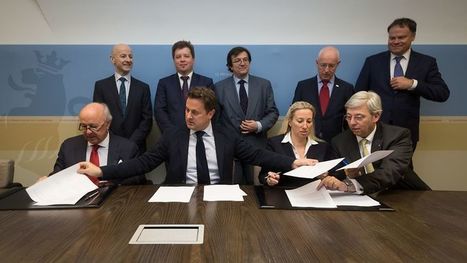
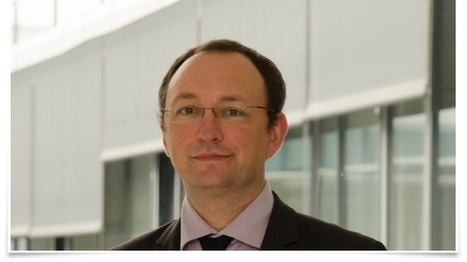
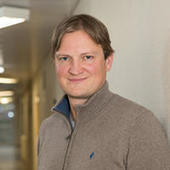
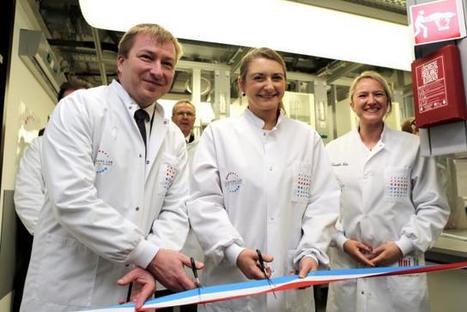
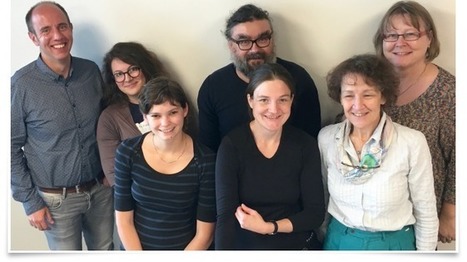
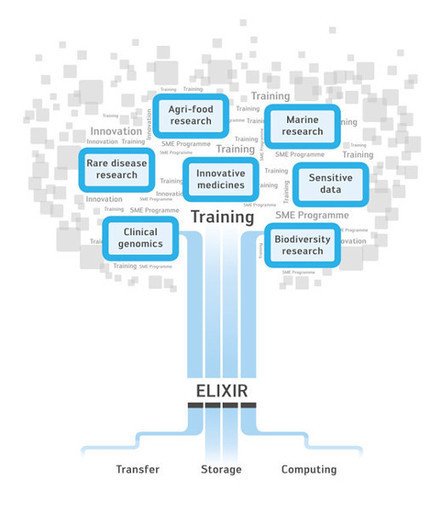
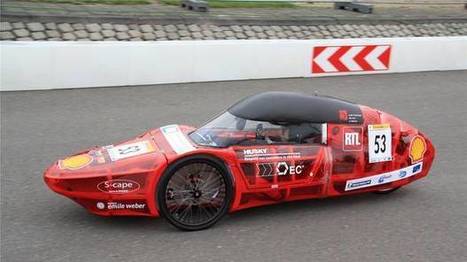

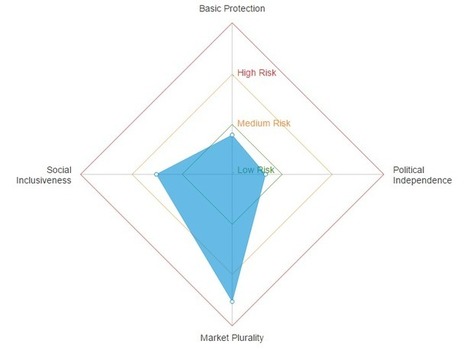
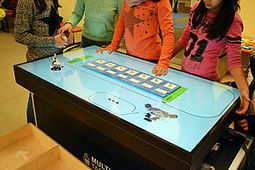






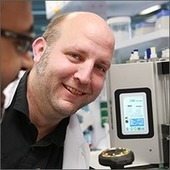

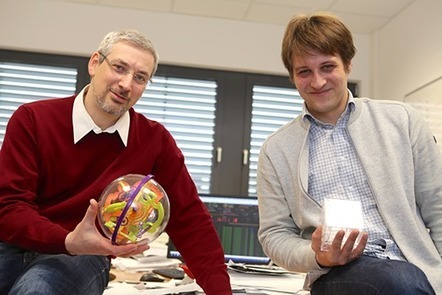
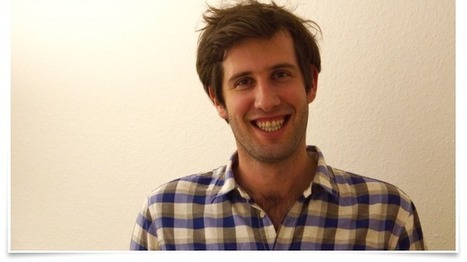
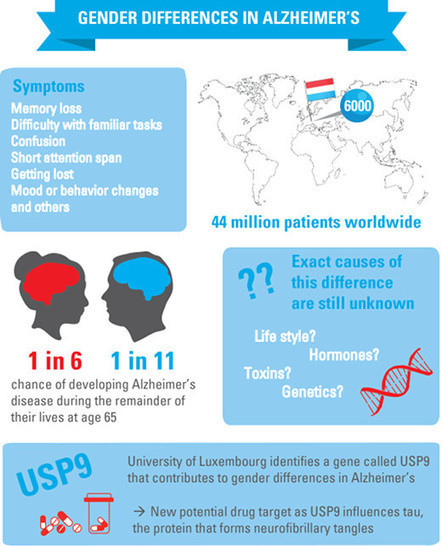

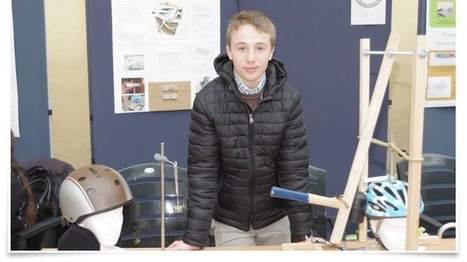
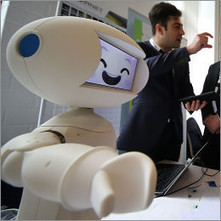
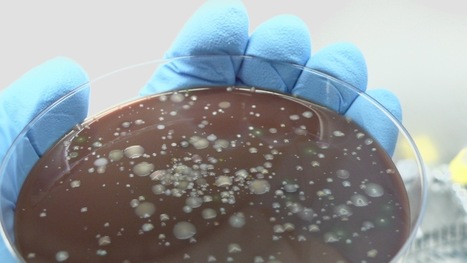
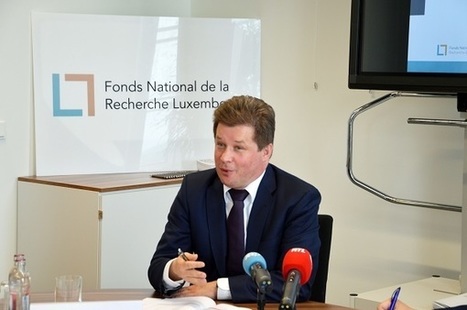
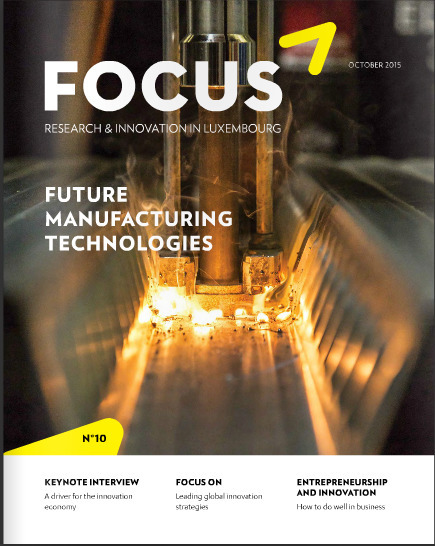






Learn more / En savoir plus / Mehr erfahren:
http://www.scoop.it/t/luxembourg-europe/?&tag=Research